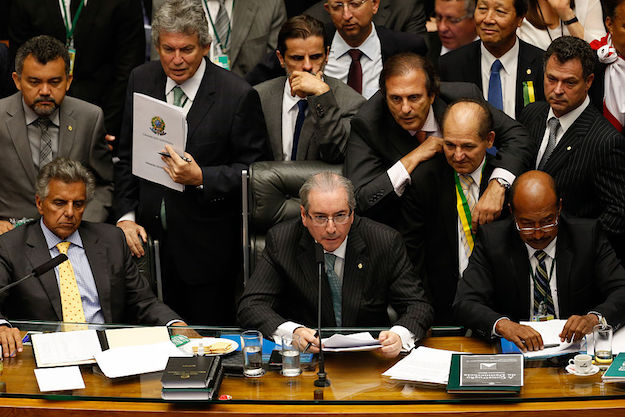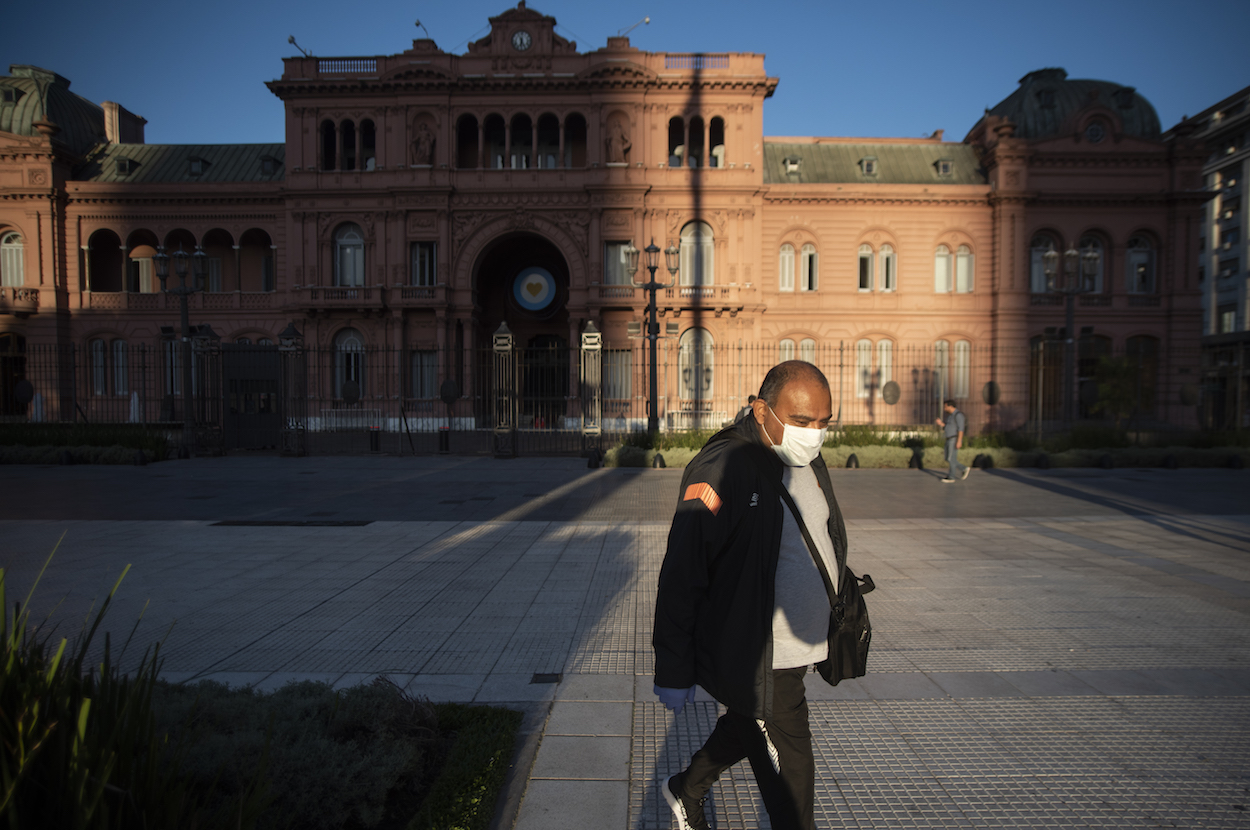I watched results of the 2014 general elections from the newsroom of Folha de S.Paulo, most likely Brazil’s most important newspaper. Of course, everyone’s eyes were glued to the presidential contest. It’s hard to remember this now, because the 2018 election is such an extraordinary interesting mess, but that year’s race was gripping, too. One candidate died in a strange plane crash just two months prior to the vote, throwing the race wide open. The left-leaning incumbent, Dilma Rousseff, stretched both truth and national finances to the limit and barely won re-election over her second-round opponent, Aécio Neves.
As usual, the congressional race was mostly ignored. Some diligent journalists attempted to explain the Byzantine system by which legislators are elected. Afterward, some labor advocates crunched the numbers and found that, for some reason, the new legislature was probably the most conservative since the days of the 1964 military coup. This generated a tiny bit of chatter, and then everyone turned their attention to Rousseff and Neves, and mostly ignored Congress again.
Until 2016 – when Brazil’s lawmakers seemed, incredibly, to be coming together to actually remove Rousseff from office for budgetary manipulation. It was only then that we (national and international) journalists put a spotlight on Congress, which in Brazil is more important than the presidency. It was only then that we reported, for example, that a majority of the individuals in both houses faced accusations of corruption or other serious crimes.
All of this was knowable in 2014. Who these men and women were was no secret. Imagine how Brazilian history might be different if, four years ago, some organization with a large platform had made a simple list, state-by-state, of all the individuals credibly accused of serious crimes, that voters could quickly consult before entering the booth?
I’m a voter in the United States of America, and our system is much simpler than Brazil’s. In my congressional district, I have essentially two choices, and most people can easily decide on one based on party reputation. And in California, I have a short list of yes / no referendum questions. I’d also bet that I’m an especially informed voter, since my full-time job is to observe and write about politics. Nevertheless, I rely heavily on voter guides prepared by the U.S. media to figure out how I am going to vote. They break down the candidates, providing some basic background information so I’m not tricked by misleading language or hidden figures. They even make recommendations.
If I, privileged with lots of free time and a political education, need this kind of help in the U.S., imagine how the average Brazilian – working real jobs through years of recession, busy with family, dealing with crime all around – approaches the utterly labyrinthine election process they are forced to deal with. In each state, voters are confronted with a huge list of candidates from a dizzying array of parties. A total of 28 parties entered Congress last time – and many of them basically have the same name – while they often actually stand for different things in different regions. By the end of campaign season, most Brazilians have a very good idea of whom they want for president, and why. But it’s nearly impossible for a regular person to make a fully educated congressional choice.
This is only democracy in the purely formal sense. This is a recipe for the reproduction of the status quo (for the record, I think U.S. democracy is seriously flawed, too). It is no surprise political scientists report that in Brazil, the best way to win in this system is to be personally liked, or simply recognized – it often doesn’t matter for what – or spend money on direct advertising. Party reputation and proposals matter far less.
The only way this system has the slightest chance of legitimacy is if voters are highly informed about their options. The media covering the Brazil 2018 elections have a responsibility to provide clear, in-depth analysis of these races, and to make it simple and widely accessible, or they are complicit in sham democracy. We have to admit that we were complicit last time.
It gets even more complicated. The simple solution I suggested above, a voter guide identifying the allegedly corrupt, wouldn’t work so simply. Apart from eliciting a furious response from powerful establishment politicians, who would claim (somewhat legitimately) that an accusation is not a conviction, and (somewhat legitimately) that the media has its own biases, lots of them would enter Congress anyway. That’s because voters can simply vote for a party, and particularly popular candidates “transfer” their surplus of votes to other members of their coalition. Last time, only 5 percent of federal deputies were elected directly. So even if Brazil somehow voted 100 percent “clean,” it’s extremely likely lots of corrupt politicos would enter anyway.
A political reform might improve the system, if anyone ever cared enough to drum up the political will to push it through. But to care, they’d have to know what it is in the first place.
There’s no easy approach for journalists to cover the existing system. And I know, all too well, that Brazilian journalism is even more cash-strapped and eyeball-desperate than its North American equivalent. But almost no one understands the system, and Brazilians have a right to know how it works and what’s going on. They shouldn’t be forced to do extensive research on their own to participate in democracy. At the very least, I’d venture, they have right to quickly check which candidates are literally on trial, who voted to remove Rousseff, and how each state coalition comes down on the country’s main issues. This information should be on TV, on the radio, on Facebook.
I don’t know how to do it exactly. But this much is clear: In 2018, we have to pay more attention to Congress.
—
Bevins worked for the Financial Times in London and São Paulo, then was Brazil Correspondent for the Los Angeles Times from 2011-2016, before moving to Jakarta. He’s now writing a book on Cold War violence based on his work in Southeast Asia for the Washington Post. You can follow him on Twitter @vinncent






